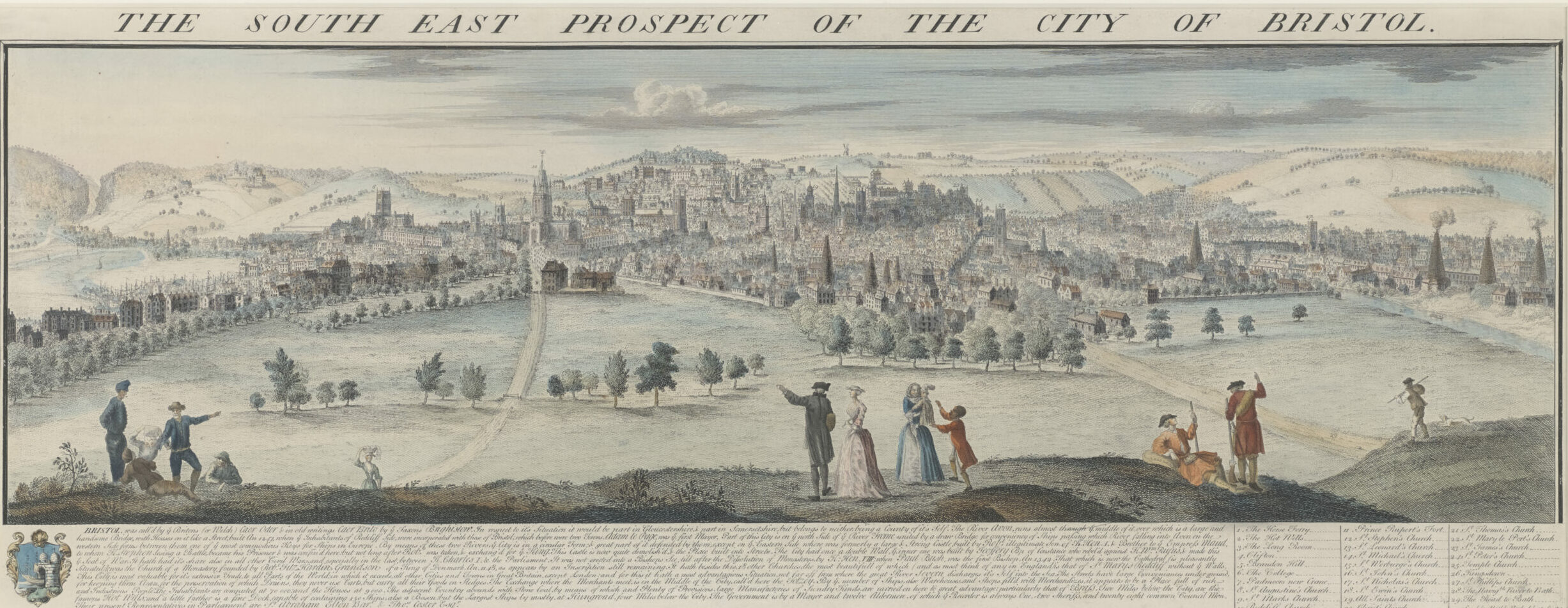Call for Papers: SRS 11th Biennial Conference

Interconnections
Interconnections – between people, places and ideas – were critical to the Renaissance and the world in which it emerged. This sense of connectedness was especially significant for Bristol: it was a hub in the southwest region, a major sea port, and played a key role in regional, European and transatlantic networks of commerce and knowledge exchange. But of course, the theme of connections encompasses relationships throughout the Renaissance world, whether at a local, national, transnational or global scale, as scholars of early modern geography, spatiality and landscape have repeatedly shown. Connections underpinned the full gamut of human relationships, from marriages and parent-child bonds, through to friendships, cliques, communities and confessions. And those relationships were, in turn, nurtured by, and the locus for, the exchange of material culture, books, gifts, correspondence, and the ideas and cultural associations which each of these conveyed. More than that, links between the Renaissance era, and its past and future, were also highly meaningful, as studies of reception, translation, adaptation, and influence all reveal. Finally, the theme of interconnection encourages us to think about the place of the academic study of the Renaissance within a wider network of relationships, including with practitioners, educationalists, and the general public.
At the same time, many of these forms of connections had their opposites: forces of disconnection and division. Building on the discussions of some of these themes which were raised by the ‘Difficult Pasts’ theme of the previous SRS Conference in Liverpool (July 2023), the Bristol Conference also invites participants to think about the relationships and tensions between those two forces.
We invite researchers across the many fields of Renaissance and Early Modern studies — for instance, Art History, English and Comparative Literature, Modern Languages, History, Music — as well as museum and gallery practitioners, curators, educators, and creative practitioners to submit proposals. Topics might include (but are not limited to):
- Marriage
- Parent-child relations
- Family networks
- Friendship
- Gift-exchange
- Geography and cartography
- Community identity
- Confession building
- Network theory
- Correspondence
- Reception
- Translation and adaptation
- Mobilities
- Global history
- Links with nature
- Trade and commerce
- Trust
- Interdisciplinarity in approaches to the Renaissance
- Presenting the Renaissance to the public
As at previous SRS conferences, there will also be an Open Strand, which allows submissions that are not connected to the conference's core theme.
We welcome proposals for panels, roundtables, lightning papers, seminars, or individual papers. If submitting a seminar proposal, please read the guidance on what is expected of seminar leaders and how we anticipate the seminar will be planned and conducted. It is anticipated that each panel session will last ninety minutes. For panels, individual papers should last no more than twenty minutes, to allow approximately thirty minutes at the end for questions; shorter ‘lightning’ papers will also be considered (so, too, will other formats if they can be accommodated within the time and resources available). In addition to contact’s name and contact email, proposals should comprise the following:
Panels (including lightning papers): individual abstracts of 150-200 words for each paper and a brief overview of the panel’s scope of 150-200 words; full list of speakers.
Seminars: outline of up to 300 words; list of seminar leader(s) and brief biography of not more than 150 words per leader, detailing how their expertise connects to the proposed seminar.
Roundtables: outline of up to 300 words; full list of speakers and brief biography of not more than 150 words per speaker to show how the speakers’ expertise connects to the proposed roundtable.
Individual papers: abstract of 150-200 words. Individual papers will be allocated to panels by the organisers.
'Linked' panels will also be considered: please submit the proposal as one document, providing information for each panel [abstracts, speakers etc] listed under the panel's subheading.
Pre-recorded papers: SRS Bristol will largely be an in-person conference. Depending on capacity and demand, and in support of our commitment to Equality Diversity and Inclusion (EDI), we plan to accommodate a small number of panels involving pre-recorded papers, and (if possible) a live (online) Q&A session. We do not have capacity for full hybrid delivery, and so the delivery of these panels will depend on the number of proposals received. For further questions on this format, please write to us at srs-2025@bristol.ac.uk.
Our understanding of ‘Renaissance’ is broad and includes the full range of Early Modern Studies: we welcome applications from scholars at all stages of their careers, from those who are conducting research beyond academic institutions, in all disciplinary backgrounds, and across a wide chronological and geographical spectrum; we also value bold, innovative, and provocative approaches to research. SRS supports the principle that academia cannot reach its full potential unless it can benefit from the talents of all, and is committed to equality, diversity and inclusion.
The deadline for submissions to be submitted via the website is Friday 27th September 2024, noon BST. We anticipate communicating decisions on submissions by Thursday 31st October 2024. For further information, please contact us at srs-2025@bristol.ac.uk.
Please note: the call for papers has now closed.
